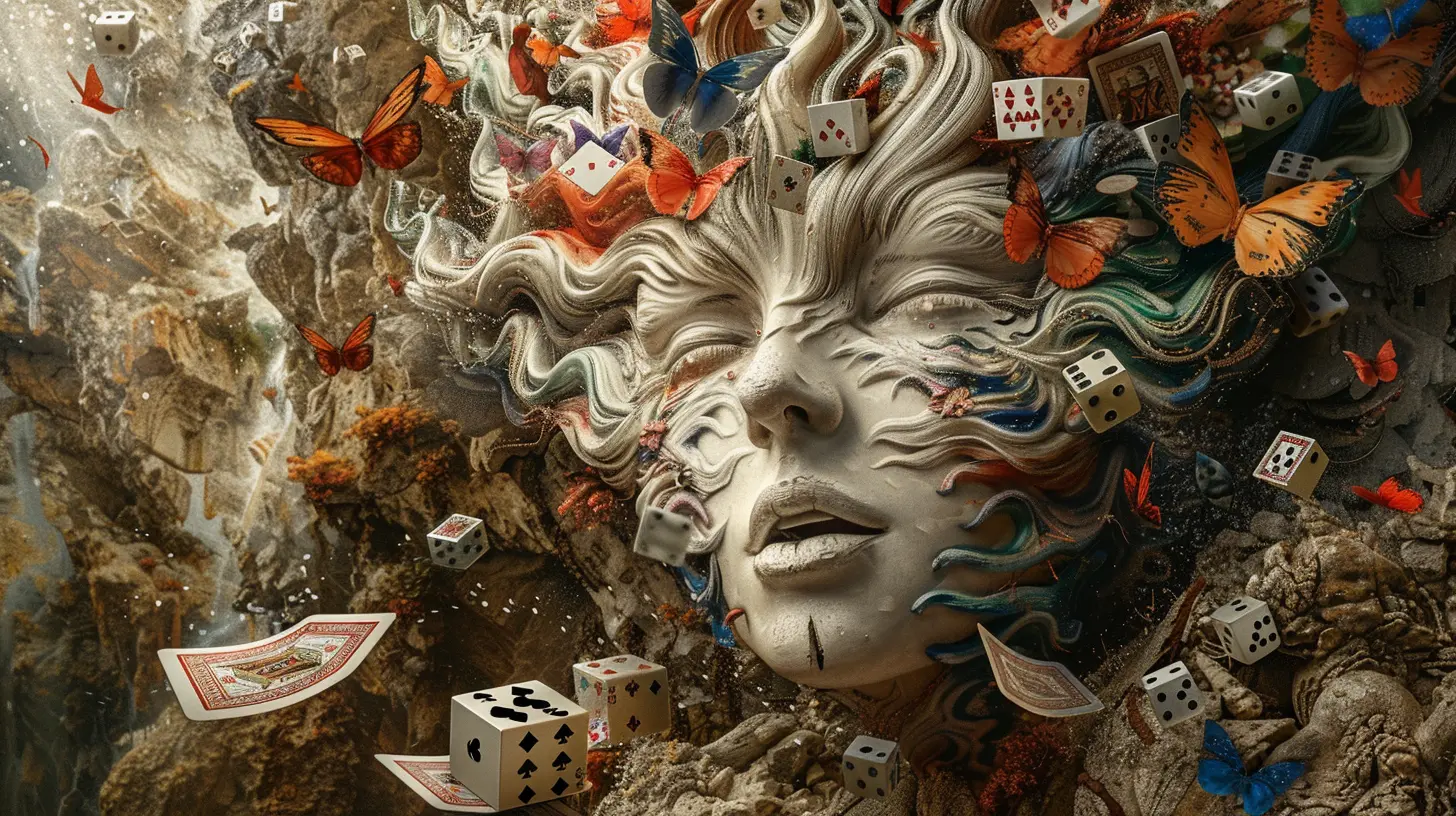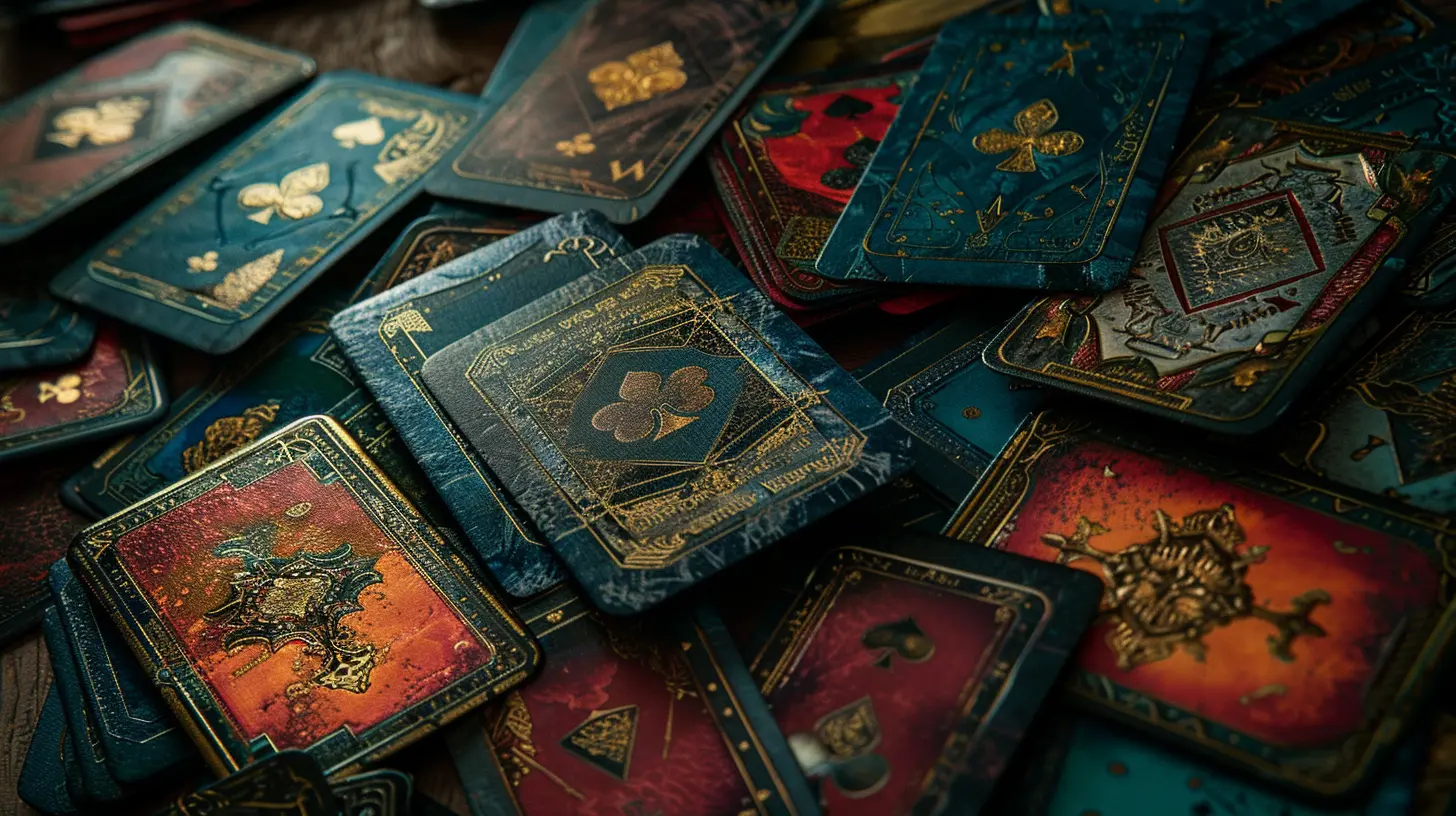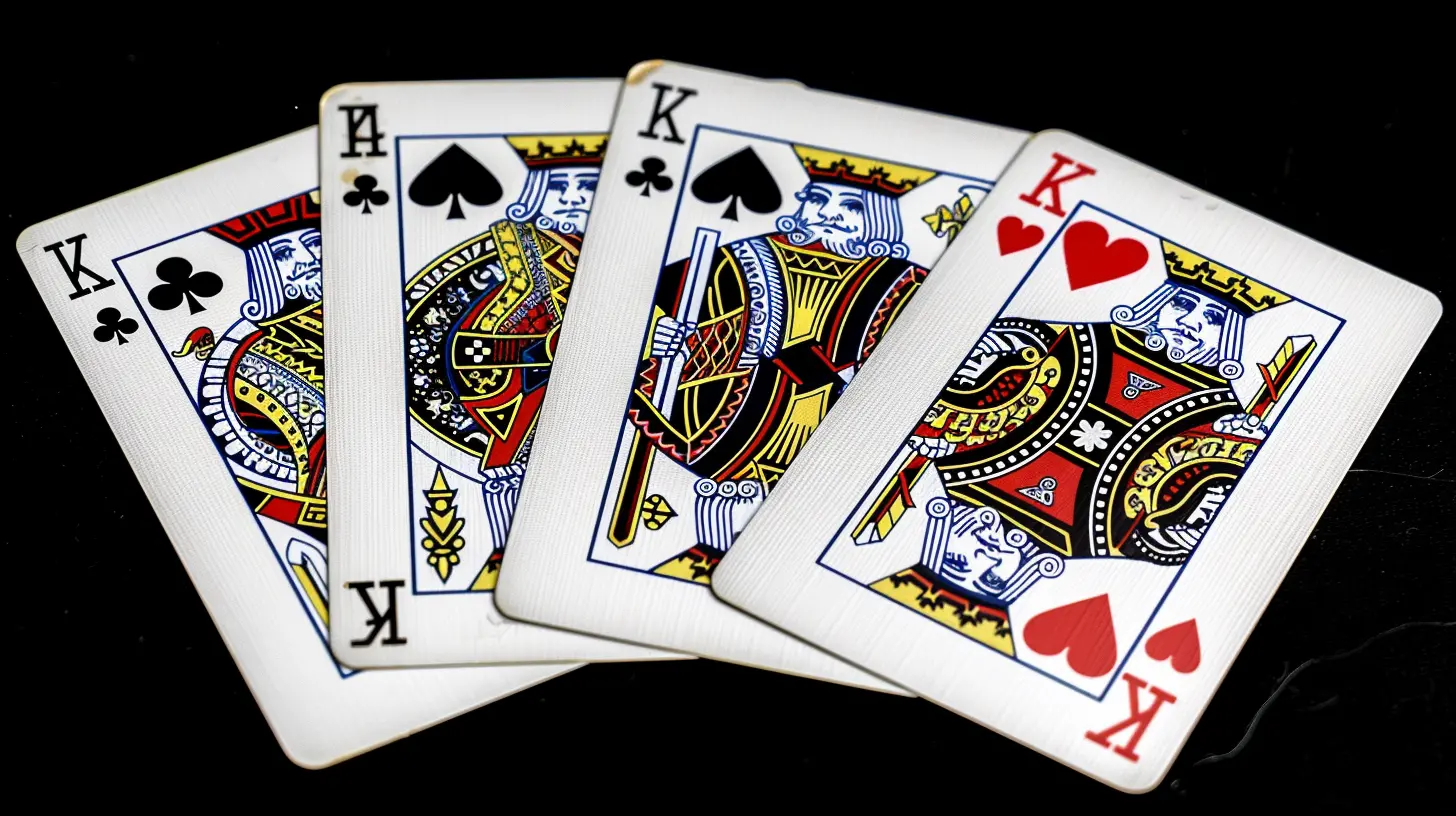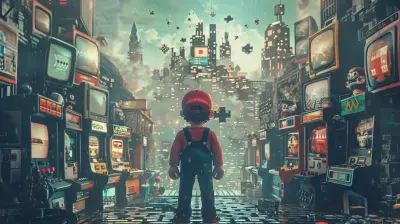How Playing Card Games Can Sharpen Your Mental Skills
23 June 2025
Let’s face it: we live in a world where life is a constant juggling act. You’re balancing work, family, social commitments, and maybe even your latest Netflix binge. With so much happening, it’s easy to feel mentally drained. But here’s the cool thing—there’s a fun, low-key way to give your brain a workout without burning it out. Card games! Yep, those humble decks of 52 cards sitting in your drawer can do wonders for sharpening your mental skills. Crazy, right?
Whether you’re diving into a round of Poker, strategizing in Solitaire, or battling it out in a game of Rummy with friends, playing card games isn’t just about passing the time. It’s like sneaking vegetables into your mac and cheese—it’s fun, but secretly good for you. Let’s break it down and see how shuffling a deck of cards can shuffle your brain into shape.
1. Improves Memory and Concentration
Ever tried playing “Go Fish” or any memory-based card game? If you have, you know it’s not just about luck—it’s about keeping track of who has what card, strategizing your moves, and recalling past plays. That’s memory and focus in action right there.Card games force you to zero in on the task at hand. You’ve got to pay attention to the cards being played, recall your opponent's moves, and think a few steps ahead. This repeated mental exercise is like pumping iron at the gym, but instead of bulking up your muscles, you’re building cognitive strength. Over time, this translates to improved memory and better concentration in your day-to-day life. Think of it as mental CrossFit—without the sweat.
2. Enhances Problem-Solving Skills
Card games often demand strategic thinking. For example, in games like Poker or Bridge, you’re constantly analyzing situations, making quick decisions, and weighing risks vs. rewards. Should you go all in? Should you fold? It’s like playing 3D chess but much more portable and way more fun.Even simpler games like Solitaire require a strategy. You’re not just laying out cards randomly; you’re making tactical decisions to get through the deck. It’s problem-solving at its finest. And guess what? The problem-solving skills you hone while playing card games can translate into your real life. Got a tricky work project or need to figure out how to beat peak traffic? Boom, your card-playing brain is ready to step up.
3. Boosts Logical and Analytical Thinking
Card games are often riddled with rules, patterns, and probabilities. To succeed, players frequently have to think critically. Let’s take Poker again as an example—winning isn’t just about having a good hand; it’s about analyzing the odds, reading your opponents, and making calculated bets.When you play card games regularly, you’re essentially training your brain to think more logically. You learn to break down problems into manageable chunks and make decisions based on data rather than guesswork. Logic and analysis are like the secret sauce to winning in both card games and life.
4. Teaches Patience and Emotional Control
Have you ever been on the verge of shouting when you’re dealt a terrible hand? Yeah, we’ve all been there. But card games teach you to roll with the punches, stay patient, and make the best of what you have. (Hello, life lessons!)Winning isn’t guaranteed, and sometimes you have to suck it up and wait for your opportunity. Games like Poker also teach you the importance of emotional control. You can’t let your frustration show, or you risk giving away your game. In the end, learning to keep your cool while playing cards can translate to other areas of life—like mediating a family argument or staying composed during a work crisis. It’s like Zen training, but with cards instead of meditating monks.
5. Strengthens Social Skills
Card games are often social experiences—whether you’re playing a casual game with friends or competing in a tournament. You’ve got to interact, communicate, and sometimes bluff your way through a win. Games like Spades, Hearts, or even Uno bring people together and encourage teamwork and collaboration.Beyond just having a good time, this social aspect of card games can boost your interpersonal skills. You learn to read people’s expressions, adapt your strategies to their behavior, and even negotiate alliances in team-based games. So, if you’re looking to level up your social game, why not pull out a deck of cards and invite some friends over?
6. Improves Math Skills Without Feeling Like Homework
Calculating probabilities, counting cards, and keeping track of scores—card games sneak in a healthy dose of math. But here’s the best part: it doesn’t feel like school. You’re doing mental arithmetic without even realizing it.For kids, this can be a great way to improve basic math skills. For adults, it keeps the brain sharp and helps prevent cognitive decline. A win-win, right? Think of card games as the spinach smoothie of mathematics—it’s good for you, but it tastes a whole lot better.
7. Encourages Creativity and Adaptability
Sometimes, card games throw you curveballs. You might start with a bad hand, but you’ve got to adapt and think creatively to turn the game around. This adaptability isn’t just useful at the card table—it can help you roll with the unexpected twists and turns of life.For instance, in games like Euchre or Crazy Eights, the rules can change depending on the hand you’re dealt. Being able to think on your feet and come up with innovative strategies is what makes the game exciting. It’s like a mental fire drill, training your brain to stay flexible and creative in any situation.
8. Promotes Relaxation and Stress Relief
Let’s not forget the mental benefits of simply unwinding. Card games are great stress-busters. Unlike competitive video games or intense workouts, sitting down for a friendly game of cards is low-impact and soothing.The simple act of shuffling a deck, drawing cards, and strategizing is almost meditative. Plus, the social aspect of playing with friends or family can lift your mood and give you a sense of connection. It’s like hitting the pause button on the chaos of life for a bit—and who doesn’t need that?
9. Prevents Cognitive Decline
As we age, keeping the brain active is crucial to fend off cognitive decline. Studies have shown that engaging in mentally challenging activities—like playing card games—can reduce the risk of conditions like dementia and Alzheimer’s.Games like Bridge and Rummy require memory, problem-solving, and reasoning skills, which help keep the brain sharp over the years. Think of playing card games as giving your brain a regular tune-up—it’s preventive maintenance at its most enjoyable.
Wrap-Up: Shuffle Your Way to Smarter Thinking
So, the next time someone brushes off card games as a waste of time, you can hit them with the facts: playing cards isn’t just fun—it’s a brain-boosting activity that builds memory, problem-solving abilities, logic, and so much more.Whether you’re a casual card player or ready to host a weekly game night, remember that every shuffle helps sharpen your mind. Plus, it’s a great excuse to put your phone down and enjoy some good old-fashioned, face-to-face fun. Who knew something so simple could be so powerful?
So, go ahead. Deal out the cards, channel your inner strategist, and let the mental gains begin. Trust me, your brain will thank you.
all images in this post were generated using AI tools
Category:
Card GamesAuthor:

Brianna Reyes
Discussion
rate this article
2 comments
Easton Kearns
Card games are more than mere entertainment; they enhance cognitive functions such as strategic thinking, memory, and problem-solving. Engaging in these games fosters critical skills like risk assessment and decision-making under pressure, making them a valuable tool for mental development. Embracing card games can significantly boost your mental agility.
October 8, 2025 at 2:39 AM

Brianna Reyes
Thank you for highlighting the cognitive benefits of card games! They truly are a fantastic way to enhance mental skills while having fun.
Julia Lee
Card games are brain workouts—strategize, anticipate, and outsmart your opponents. Get ready to level up!
June 23, 2025 at 2:33 PM

Brianna Reyes
Absolutely! Card games are an excellent way to enhance cognitive skills like strategy and foresight. Let's dive into how they can boost your mental agility!


